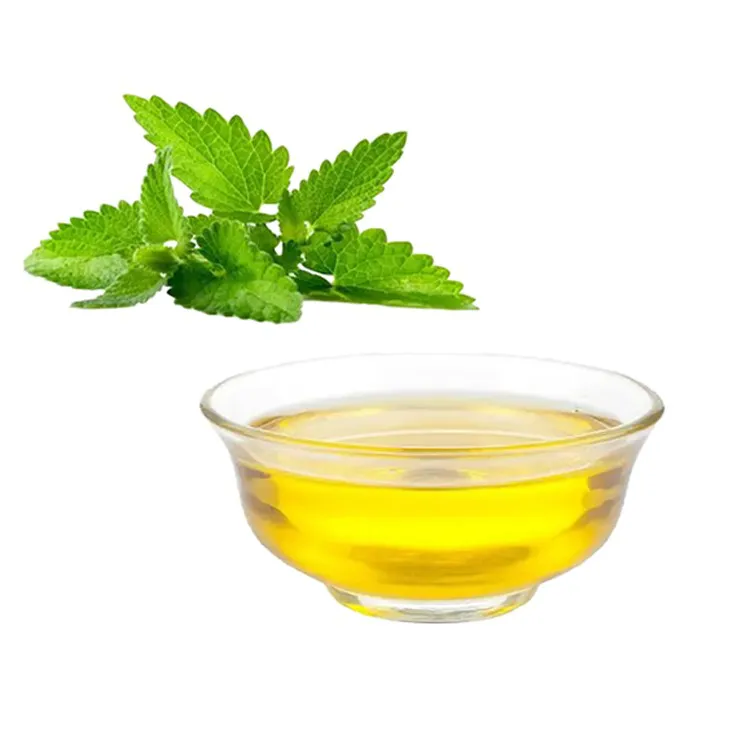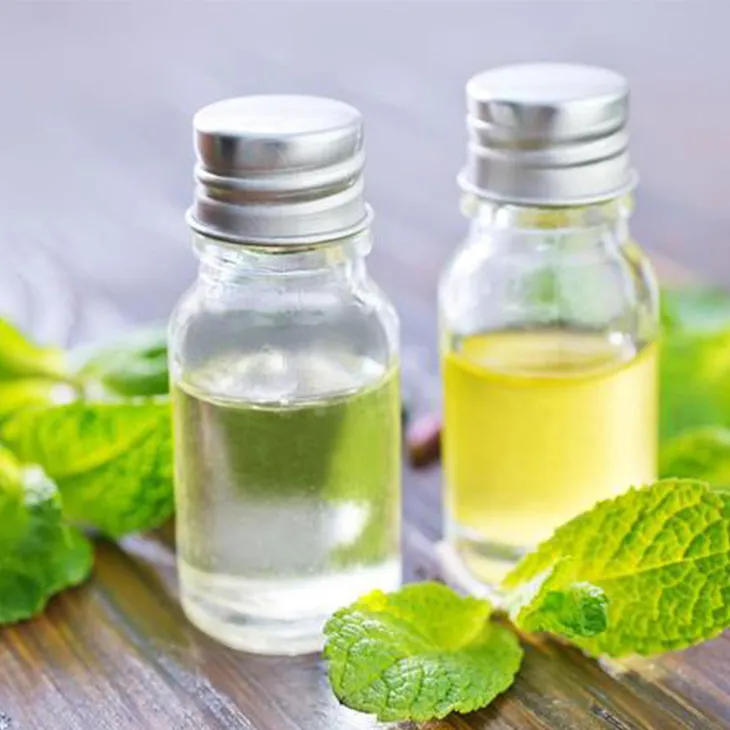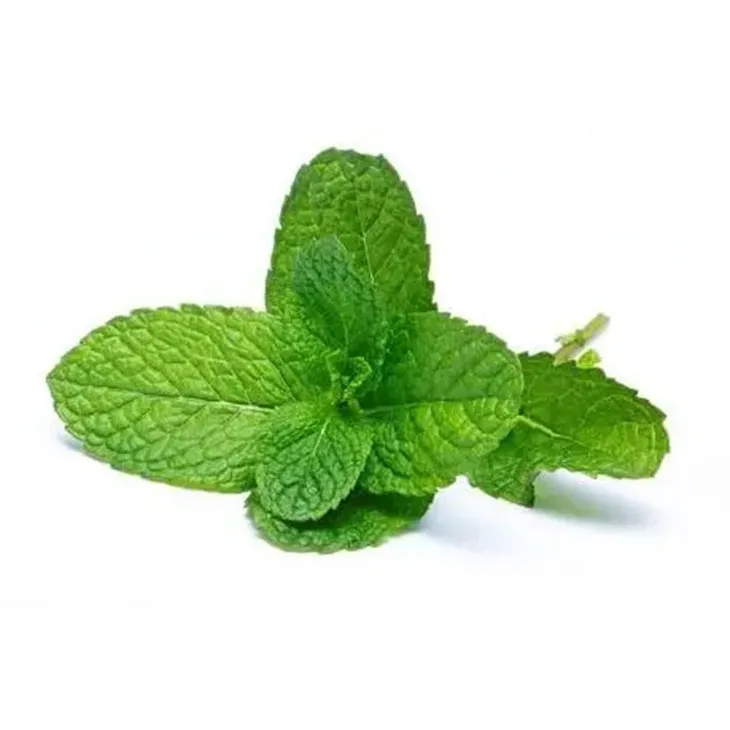- 0086-571-85302990
- sales@greenskybio.com
Chinese peppermint oil powder factories.
2024-11-30

Peppermint Oil powder has gained significant popularity in various industries, and China is home to numerous factories dedicated to its production. These factories play a crucial role in the global market.
1. Production Capacity and Scale
China's Peppermint Oil powder factories vary in size. Some large - scale factories are equipped with advanced production lines that can produce a substantial amount of Peppermint Oil powder annually. They have the ability to meet both domestic and international market demands. For instance, they can supply to the food and beverage industry, where peppermint - flavored products are highly sought after.
Large - scale Factories
The large - scale factories usually have a high - throughput production process. They are often located in areas with easy access to raw materials and transportation networks. Their production capacity can range from several tons to dozens of tons of peppermint oil powder per year. This allows them to take on large - scale orders from major companies in the food, pharmaceutical, and cosmetic industries.
Medium - scale and Small - scale Factories
On the other hand, medium - scale and small - scale factories also have their own advantages. Medium - scale factories may focus on a certain niche market or specialized product types. They can be more flexible in production and are able to quickly adjust their product lines according to market demands. Small - scale factories, although with relatively limited production capacity, can often produce high - quality, artisanal peppermint oil powder. They may target local markets or specialized customers who value unique and high - quality products.

2. Quality Control
Quality is of utmost importance in these factories. They implement strict quality control measures at every stage of production. Starting from the selection of raw peppermint materials, which are often sourced from high - quality peppermint farms across China. The extraction process of peppermint oil is carefully monitored to ensure purity and potency. Then, during the powder - making process, strict standards are adhered to in terms of particle size, solubility, and aroma retention.
Raw Material Selection
The selection of raw peppermint materials is the first step in ensuring quality. Peppermint farms in China are spread across different regions, each with its own unique climate and soil conditions. Factories usually source peppermint from regions known for producing high - quality crops. For example, some areas in Jiangsu and Anhui provinces are famous for their peppermint cultivation. The peppermint plants are carefully inspected for their growth status, disease resistance, and essential oil content before being harvested.
Extraction Process Monitoring
The extraction of peppermint oil is a crucial stage. Different extraction methods can affect the quality of the oil. Factories use modern extraction equipment and techniques to ensure that the oil obtained is pure and of high potency. They monitor parameters such as temperature, pressure, and extraction time. For example, if the temperature is too high during steam distillation, it may lead to the degradation of some volatile components in the peppermint oil, affecting its flavor and quality.
Powder - making Process Standards
During the powder - making process, strict standards are adhered to. Particle size is an important factor. If the particle size is too large, it may affect the solubility of the powder, and if it is too small, it may cause caking during storage. Solubility is also crucial, especially for applications in the food and beverage industry. Aroma retention is another key aspect. Factories use special encapsulation techniques to ensure that the characteristic peppermint aroma is well - preserved in the powder form.

3. Technological Innovation
Many factories are constantly investing in technological innovation. They are adopting new extraction techniques such as supercritical fluid extraction, which can obtain higher - quality peppermint oil with more natural flavor components. In the powder - making process, advanced drying and encapsulation technologies are being used to improve the stability and shelf - life of the peppermint oil powder.
New Extraction Techniques
Supercritical fluid extraction is becoming increasingly popular in peppermint oil production. This technique uses supercritical carbon dioxide as the solvent. It has several advantages over traditional extraction methods. Firstly, it can operate at relatively low temperatures, which helps to preserve the natural flavor components of peppermint oil. Secondly, it can selectively extract the desired components, resulting in a purer and more concentrated peppermint oil. Moreover, it is more environmentally friendly as carbon dioxide is a non - toxic and easily recyclable solvent.
Advanced Powder - making Technologies
In the powder - making process, advanced drying technologies such as freeze - drying and spray - drying are being used. Freeze - drying can preserve the structure and properties of peppermint oil better, while spray - drying is more suitable for large - scale production. Encapsulation technologies are also evolving. Microencapsulation, for example, can protect the peppermint oil from oxidation, moisture, and light, thereby significantly improving its stability and shelf - life. This allows the peppermint oil powder to be stored and transported more easily without losing its quality.

4. Market Reach and Export
China's peppermint oil powder factories not only serve the domestic market but also have a strong presence in the international market. Their products are exported to countries all over the world, especially to regions with a high demand for natural flavorings and fragrances, such as Europe and North America. This export - oriented nature of these factories has contributed to China's position in the global peppermint oil powder trade.
Domestic Market
In the domestic market, peppermint oil powder is widely used in various industries. In the food industry, it is used in the production of candies, chewing gums, and beverages. In the pharmaceutical industry, it has certain medicinal properties and can be used in some oral care products and traditional Chinese medicine preparations. In the cosmetic industry, it is added to lotions, creams, and shampoos for its refreshing and soothing effects.
International Market
Europe and North America are major export destinations for Chinese peppermint oil powder. In Europe, the demand for natural flavorings in the food and beverage industry is high due to consumers' preference for healthy and natural products. In North America, the cosmetic and pharmaceutical industries are major consumers of peppermint oil powder. Chinese factories have to meet the strict quality and safety standards of these international markets. They often obtain relevant certifications such as ISO, HACCP, and FDA - compliant certifications to ensure their products can be smoothly exported.
In conclusion, China's peppermint oil powder factories are a significant part of the global peppermint oil powder industry, with their production capacity, quality control, technological innovation, and market reach making them key players in both domestic and international markets.

FAQ:
What are the main factors contributing to the production capacity of Chinese peppermint oil powder factories?
The production capacity of Chinese peppermint oil powder factories is influenced by several factors. Firstly, the scale of the factory itself matters. Larger factories are more likely to have advanced production lines which can handle a greater volume of production. Secondly, the availability of raw materials also plays a role. If they have a stable supply of high - quality peppermint from local farms, it can support higher production levels. Additionally, the efficiency of the production processes, such as extraction and powder - making, affects how much peppermint oil powder can be produced annually.
How do Chinese peppermint oil powder factories ensure the quality of their products?
These factories ensure product quality through multiple measures. They start with carefully selecting raw peppermint materials from high - quality sources across China. During the extraction of peppermint oil, the process is closely monitored to maintain purity and potency. In the powder - making process, strict standards are followed for aspects like particle size, solubility, and aroma retention. Quality control is carried out at every stage of production to guarantee that the final peppermint oil powder meets high - quality requirements.
What technological innovations are being adopted in Chinese peppermint oil powder factories?
Many Chinese peppermint oil powder factories are adopting various technological innovations. In the extraction of peppermint oil, new techniques like supercritical fluid extraction are being used. This method can extract higher - quality peppermint oil with more natural flavor components. For the powder - making process, advanced drying and encapsulation technologies are being employed. These technologies enhance the stability and shelf - life of the peppermint oil powder.
Which international markets do Chinese peppermint oil powder factories mainly export to?
Chinese peppermint oil powder factories mainly export their products to regions with a high demand for natural flavorings and fragrances. Europe and North America are two of the major export destinations. These areas have a large market for products that use peppermint oil powder, such as in the food, beverage, and cosmetic industries.
How do Chinese peppermint oil powder factories contribute to China's position in the global trade?
Chinese peppermint oil powder factories contribute to China's global trade position in several ways. Their large - scale production capacity allows them to meet international market demands. The high - quality products they produce, thanks to strict quality control and technological innovation, are competitive in the global market. Their export - oriented nature means that they are actively involved in international trade, which helps to strengthen China's position in the global peppermint oil powder trade.
Related literature
- Peppermint Oil Production: Technological Advancements in China"
- "Quality Assurance in Chinese Peppermint Oil Powder Manufacturing"
- "China's Role in the Global Peppermint Oil Powder Market"
- ▶ Hesperidin
- ▶ citrus bioflavonoids
- ▶ plant extract
- ▶ lycopene
- ▶ Diosmin
- ▶ Grape seed extract
- ▶ Sea buckthorn Juice Powder
- ▶ Beetroot powder
- ▶ Hops Extract
- ▶ Artichoke Extract
- ▶ Reishi mushroom extract
- ▶ Astaxanthin
- ▶ Green Tea Extract
- ▶ Curcumin Extract
- ▶ Horse Chestnut Extract
- ▶ Other Problems
- ▶ Boswellia Serrata Extract
- ▶ Resveratrol Extract
- ▶ Marigold Extract
- ▶ Grape Leaf Extract
- ▶ blog3
- ▶ blog4
-
Wholesale L - Tyrosine Suppliers.
2024-11-30
-
The best milk thistle extract in 2024.
2024-11-30
-
High - quality kidney bean extract products.
2024-11-30
-
The best aged garlic extract on the market.
2024-11-30
-
How to make powder with L - arginine.
2024-11-30
-
Tinospora cordifolia extract
2024-11-30
-
Berberis aristata Extract
2024-11-30
-
Buckthorn bark extract
2024-11-30
-
Pomegranate Extract
2024-11-30
-
Epimedium extract powder
2024-11-30
-
Citrus Aurantium Extract
2024-11-30
-
Mangosteen extract powder
2024-11-30
-
Milk Thistle Extract
2024-11-30
-
Black Rice Extract
2024-11-30
-
Curcuma Longa Extract/Turmeric extract
2024-11-30





















